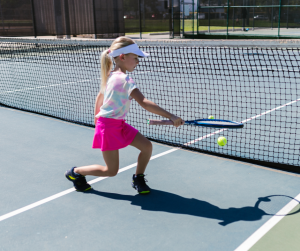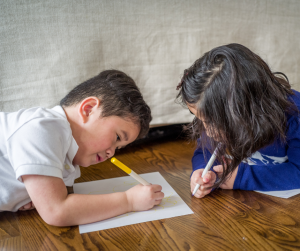At best, peer editing in the classroom is a waste of time.
At worst, it reinforces poor writing skills and generates mass confusion.
I know this isn’t what you want to hear, but it’s true.

Think about it:
Imagine that you are in PE class. You are an avid athlete that has prepared and trained for years. Now imagine that you are paired with a master pianist who has put all of their time into music but struggles with sports. You are instructed to play a set of tennis together and then sit down and evaluate each other by citing what has been done well and where improvement is needed.
Hmmm…I wonder who will benefit from this peer review exercise.
Likely no one.
The athlete will tear apart the pianist’s game in great detail using the skills she has learned through years of practice, and she will likely provide elaborate detail about what has been done wrong. This will neither inspire effort or build confidence in the already struggling student.
Similarly, the pianist will either offer a weak “good job” from which the avid sportsman will learn nothing, or she might even make up some things that “seemed” wrong to her just to participate in the exercise. In this case, the athlete will not continue to grow and an already proper skill set could be called into question.
There is simply no substitute for the PE teacher watching the game and offering professional and targeted feedback with each student’s level of play in mind.
Why then is peer editing commonplace in our classrooms when it comes to writing? The strong students learn nothing from the struggling students and might even pick up some bad habits, while the struggling student learns…well…that they are struggling.
Here’s why it is used in virtually every classroom: it reduces the work load of the teacher.
Trust me, grading and providing meaningful feedback on one paper is A LOT of work – A LOT! It takes copious amounts of time and energy. Now multiply this by 20 or 30 kids in the class and, well, you can see how peer editing took wings.
But it doesn’t work.

First consider that writing instruction in many classrooms is lacking to begin with. There is a writing education crisis among our students. They are in no way qualified to be helping one another in this endeavor. In fact, many teachers will tell you that THEY don’t feel confident in their ability to teach writing either. We are simply passing the buck down the line and accepting the poor writing skills with which students leave each grade.
I have yet to see one of my students return from a peer editing session with useful information. If they happened to get paired with a strong writer, they now have all of the commas in place and the run on sentences eliminated. They have no understanding of why these edits were made, but they will now turn in a decent draft for the teacher to evaluate. They will pass. If, on the other hand, a decent writer is paired with an overconfident (read poor) writer, they are likely to have random commas inserted willy nilly and already correct spellings now marked with a more creative (read wrong) spelling. This happens so frequently, that I have instructed my writing students to “never change their writing based on a peer edit”. Always get a second (read qualified) opinion.
I’m sorry to say that there simply is not a quick fix for the tedium that is grading a class of essays… the tedium that is grading first drafts full of run on sentences and missing paragraph structure. It must be done by a teacher. And it must be done individually with caring, comprehensive feedback on each paper.
This is the truth about peer editing.
